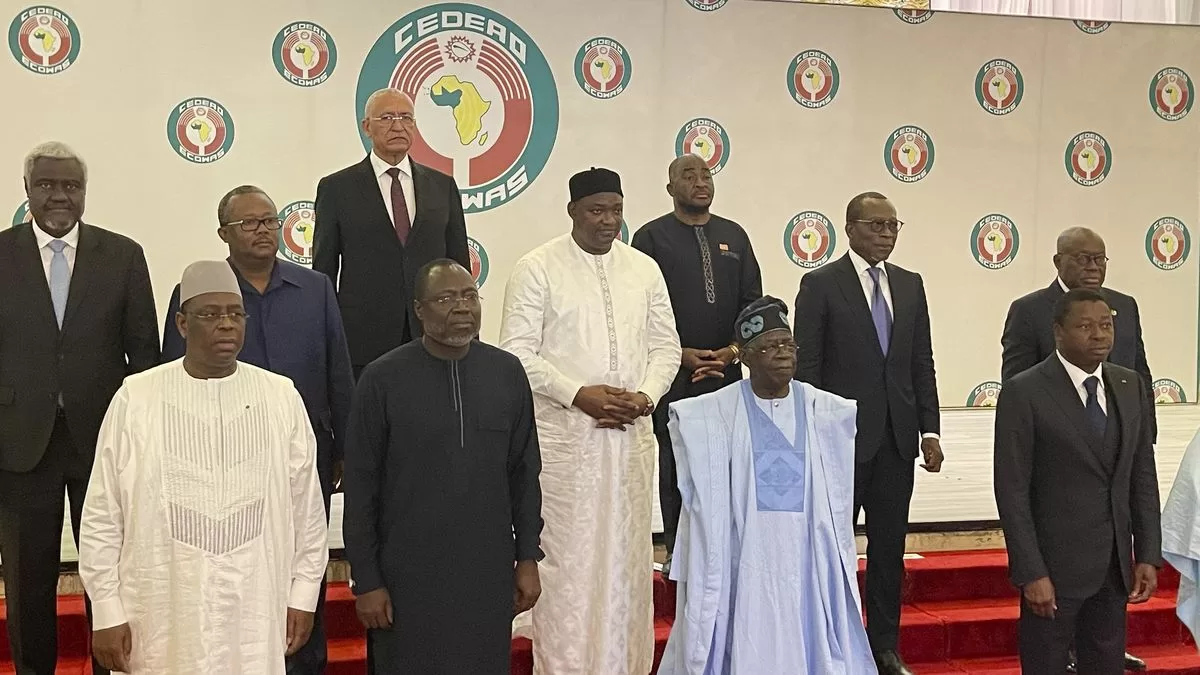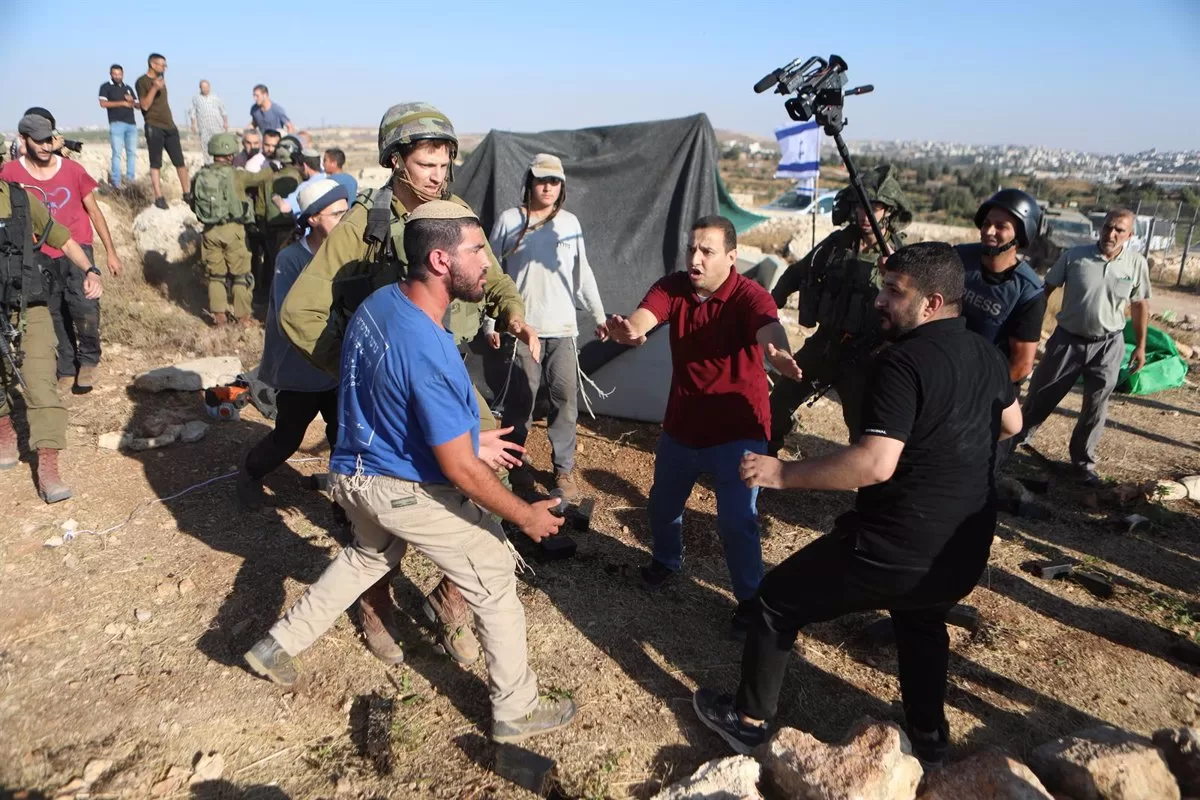Meanwhile, Niger’s neighboring countries have threatened to launch an armed intervention against the military junta led by the head of the presidential guard, although some analysts say the chances of the regional body managing to send soldiers are small.
Both the United States and France have sent soldiers and hundreds of millions of dollars in military and humanitarian aid in recent years to Niger, which was a French colony until 1960. The French and Americans train Nigerien forces, and French military forces lead joint operations in the north of the country.
Since the coup that ousted President Mohamed Bazoum, people have carried Russian flags and praised Russia at pro-junta rallies.
US Secretary of State Antony Blinken visited Niger in March to strengthen relations and announce $150 million in direct aid, calling the country a “model democracy.” France withdrew from Mali last year and has some 1,500 troops in Niger.
For its part, the Economic Community of West African States, known as ECOWAS, on Sunday announced economic and travel sanctions against Niger over the coup, saying it would use force if the coup leaders did not reinstate the elected president. democratically in a week maximum.
Since the 1990s, the 15-nation bloc has tried unsuccessfully to protect democracies against the threat of coups, with mixed results.
Niger is heavily dependent on foreign aid, and sanctions could further impoverish its more than 25 million people. ECOWAS suspended all commercial and financial transactions between its member countries and Niger, and froze all Nigerian assets in the region’s central banks.
The sanctions could prove disastrous and Niger must find a solution to avoid them, Prime Minister Ouhoumoudou Mahamadou told French broadcaster Radio France Internationale on Sunday.
“When people say there is an embargo, the land borders are closed, the air borders are closed; it is extremely difficult for the people… Niger is a country that is very dependent on the international community,” she noted.
Four countries are run by military governments in West and Central Africa, where there have been nine successful or failed coups since 2020.
In the 1990s, ECOWAS intervened in Liberia during its civil war, one of the bloodiest conflicts in Africa and one that made many wary of intervening in internal conflicts. In 2017, the bloc intervened in The Gambia to prevent the predecessor of the new president, Yahya Jammeh, from impeding the transfer of power. Some 7,000 soldiers from Ghana, Nigeria and Senegal entered the country, according to the Global Observatory, which provides analysis on peace and security issues. In general, the intervention was considered to have fulfilled its mission.
If the regional bloc uses force, it could spark violence not only between Niger and ECOWAS forces, but also between civilian supporters of the coup and those who oppose it, Niger analysts said.
Although unlikely, “the consequences for the civilian population of such an approach, if the coup leaders opt for confrontation, would be catastrophic,” said Rida Lyammouri, a researcher at the Policy Center for the New South. Sur), a think tank based in Morocco.
Lyammouri does not believe that “a military intervention will happen because of the violence it could unleash.”
Blinken on Sunday praised the ECOWAS leadership’s determination to “uphold the constitutional order in Niger” following the announcement of the sanctions, and joined the bloc in calling for the immediate release of Bazoum and his family.
The military junta, which seized power on Wednesday when members of the presidential guard surrounded Bazoum’s home and detained him, is already cracking down on the government and civil liberties.
On Sunday night he arrested four government officials, including the oil minister and son of a former president; to the minister of education; the minister of mines, and the president of the party to which the president belongs. The arrests were reported to The Associated Press by a person close to the president, who was not authorized to discuss the situation, and by a Nigerian analyst who did not want to be named for fear of reprisals.
On the same Sunday, the spokesman for the military junta, Colonel Major Amadou Abdramane, prohibited the use of social networks to disseminate messages that, he said, were detrimental to state security. He also alleged that the Bazoum government had authorized the French to carry out attacks to liberate Bazoum, claims that were not confirmed.
Observers believe Bazoum is being held at his home in the capital Niamey. The first photographs of him since the coup were released on Sunday night. In the images, he appears sitting in an armchair, smiling next to the Chadian president, Mahamat Deby, who had traveled to the nation to mediate between the government and the military junta.
On the eve of the ECOWAS decision on Sunday, thousands of supporters of the military junta took to the streets of Niamey. During the march they criticized France, waved Russian flags and banners reading “Down with France”, showed support for Russian President Vladimir Putin, and called on the international community not to meddle. Protesters also burned a door and smashed windows at the French embassy. Later the Nigerian army dispersed them.
France said Monday that President Emmanuel Macron is closely monitoring the situation in Niger and has discussed the crisis with regional leaders and European and international partners.
FOUNTAIN: Associated Press




